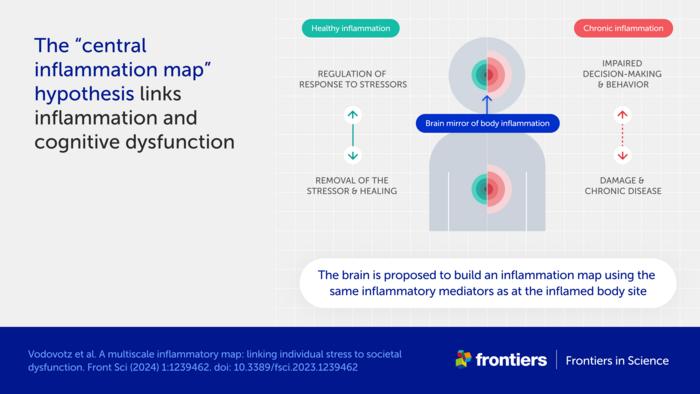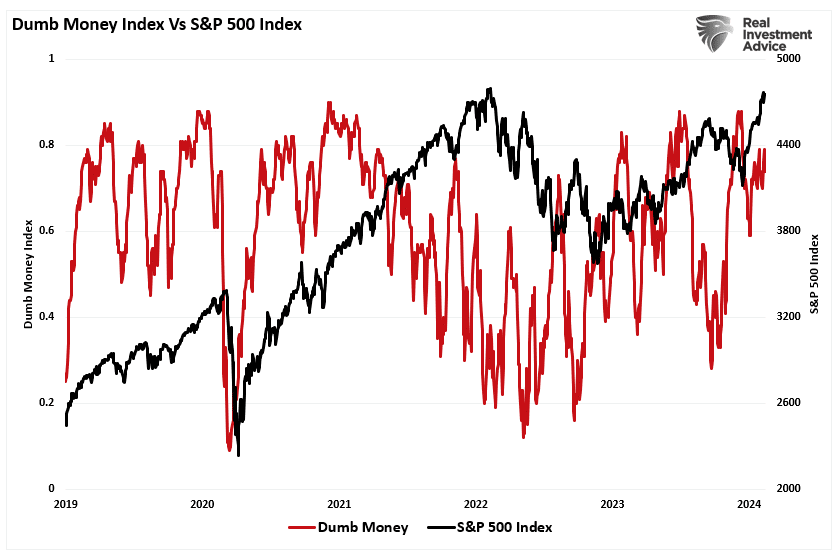Aviat urges shareholders to vote on the GOLD proxy card for ALL FIVE Aviat nominees to elect directors who will support near- and long-term value creation at Ceragon
AUSTIN, Texas, Aug. 11, 2022 /PRNewswire/ -- Aviat Networks, Inc. (NASDAQ: AVNW) ("Aviat"), the leading expert in wireless transport solutions, today issued the following open letter to shareholders of Ceragon Networks Ltd. (NASDAQ: CRNT) ("Ceragon" or the "Company") to correct the latest false claims and mischaracterizations made by Ceragon's Board of Directors ("Board") in its August 8, 2022 letter to shareholders.
Dear fellow Ceragon shareholders,
Aviat has given the Board many opportunities to consider and negotiate a transaction that would provide shareholders like you immediate value at a significant premium. Rather than engage in fruitful discussion, the Board has delayed, deferred and attempted to distract you with a series of false and misleading arguments designed to disguise their persistent failure to deliver value. Earlier this week, the Board rejected Aviat's revised proposal to acquire Ceragon for $3.08 per share in cash and stock, in another letter that distorts the record and which is replete with false claims and mischaracterizations. We're writing to you today to once again set the record straight.
THE PROPOSED TRANSACTION WOULD DELIVER SIGNIFICANT VALUE TO SHAREHOLDERS, IN EXCESS OF WHAT CERAGON CAN ACHIEVE THROUGH ITS CURRENT STRATEGY, AND WITH SUBSTANTIALLY LESS EXECUTION RISK.
- Aviat's revised proposal represents a substantial premium of 47% to the closing price of Ceragon shares on June 27, 2022, of $2.09 (the last close price prior to Aviat's first public offer) and a 64% premium to Ceragon's 60-day volume-weighted average share price of $1.88.
- Analysts' price targets reflect what Ceragon could achieve at some point in the future. However, following several quarters of operational challenges, a rising debt load, negative EPS and cash flow, and a botched chip rollout, we see these targets as, at best, highly aspirational. If Ceragon were to combine with Aviat, it would have the management, discipline, resources and broader platform to achieve its full potential.
- Ceragon lowered its annual guidance in the first quarter of 2022, and in the second quarter it missed top line consensus, continuing its pattern of underperformance, having missed analysts' consensus earnings expectations for five of the last ten quarters. Continued performance at these woeful levels will lead to analyst price target reductions.
- While Ceragon touts its progress in North America, industry league tables list Aviat as the number one player in North America, with Ceragon not even among the top three.1
- In its August 8 report, independent proxy advisory firm Institutional Shareholder Services ("ISS") noted that Ceragon, "underperformed peers and the Nasdaq index over all measurement periods ended on the unaffected date… While revenue growth deceleration has also been an issue at peers, the Company's gross margins are below pre-pandemic levels and have not shown signs of recovery over the past several quarters."2 ISS is an independent shareholder advisory service whose recommendations are relied upon by thousands of institutional investors.
Results like these are what Ceragon's Board expects you to believe is "strong business momentum." Since the beginning of 2019, Ceragon has incurred negative free cash flow of $48 million as it has attempted to produce its much-delayed next generation chip, and this burn rate has accelerated as the company has consumed $35 million of the $48 million in just the last 18 months. We believe that this 28-nanometer chip, when it is finally rolled out, will consume more power and create cost, system design, and supply chain challenges. Ceragon's debt-laden balance sheet will not support the expensive redesign needed to address these problems, which we fear could lead this entrenched Board to raise additional capital through a dilutive equity offering.
The truth is that Ceragon is struggling on its own, and is not going to achieve outlandish price targets, or even its own projections. We continue to believe that Ceragon would see tremendous advantages from being part of a larger platform with more scale and resources as part of Aviat. In fact, ISS noted that a "lack of clear progress" could send Ceragon's stock lower in the absence of a transaction, including one with Aviat.
THE CERAGON BOARD HAS DONE VIRTUALLY NOTHING TO EXPLORE (AND EVERYTHING POSSIBLE TO PREVENT) A POTENTIAL TRANSACTION WITH AVIAT OR TO MAXIMIZE VALUE FOR ALL SHAREHOLDERS.
Despite Ceragon's claims to the contrary, the Board has repeatedly erected roadblocks to exploring a value creating transaction with Aviat at any price, even declining to name their own price when offered the opportunity. Instead, they indicated it would take two months to determine a price, which is not what would reasonably be expected from a party genuinely interested in "maximizing shareholder value" – and which is grossly inconsistent with how quickly they rejected both our original and revised public offers. ISS said that "it is questionable to what extent the board has been open to negotiating a deal," and that the Board "does not appear to have engaged in detailed discussions."
We have been crystal clear since making our offer public on June 27 that our very strong preference is to negotiate a mutually agreeable transaction with Ceragon, and we have always believed that eventually they would come to the bargaining table. Unfortunately, since June, Ceragon has spent less than 30 minutes total in dialogue with Aviat, preferring instead to spend their time coming up with specious objections like demanding a reverse termination fee (payable from Aviat to Ceragon if a mutual definitive agreement was entered into but could not be closed) that was both unorthodox and outrageously high (~$60 million) as a prerequisite for discussions; complaining that our proposed reverse termination fee was too low, when in fact all we proposed is that it be based on market standards; or demanding that Aviat agree that Ceragon would not have to pay a termination fee (in the event someone else proposed to buy them after they executed a definitive agreement with Aviat).
What we now recognize is that this Board cannot come to its senses, because the Board lacks the necessary independence to do the right thing for shareholders.
CERAGON SHAREHOLDERS DESERVE A CHANCE FOR GREATER VALUE. THE ZISAPEL BLOC ON THE CERAGON BOARD IS THE PROBLEM. REPLACING A MAJORITY OF THE BOARD IS THE SOLUTION.
Three members of Ceragon's seven-seat Board are closely tied to a fourth director, the Company's Chairman, Zohar Zisapel, and serve on boards or as executives of other companies he controls. Since their other business interests are closely tied to him, it is easy to understand why these directors would support Mr. Zisapel's interests over those of other Ceragon shareholders. ISS said that "investors may question to what extent they would challenge the company's chairman/co-founder." Together this bloc provides Mr. Zisapel with effective majority control of the Board.
Please note that although Mr. Zisapel founded Ceragon, he neither owns nor controls the majority of voting shares. In fact, in February 2021, he sold approximately one-third of his Ceragon shares, when the stock was trading at over $5.00 per share, well above where it has traded since, and has not replenished his position since, showing little confidence in Ceragon's future.
The Zisapel bloc has presided over considerable destruction of shareholder value:
- Former Ceragon CEO Ira Palti oversaw total shareholder return of -21% during his tenure as CEO of Ceragon versus Russell 2000 TSR of 323% during the same period. That is an underperformance of 343%. ISS agrees that Ceragon has underperformed under Mr. Palti's leadership and recommends that shareholders vote FOR his removal from the Board.
- Yael Langer, who is currently employed by Mr. Zisapel, has been on the Ceragon Board since 2000, presiding over consistent underperformance. ISS also recommends that shareholders vote FOR Ms. Langer's removal from the Board to bring a fresh view to Ceragon's challenges.
- Mr. Zisapel himself has watched Ceragon's stock price decline by 87% over the 22 years since he took Ceragon public in August 2000. He has been Chair for every one of those 22 years.
- David Ripstein was previously employed by Mr. Zisapel, and is CEO of another company that demands considerable time and attention, which leads us to fear he would be quick to defer to Mr. Zisapel and Mr. Palti.
As the Board of a publicly traded company, Ceragon's directors should represent the interests of all shareholders, not just Mr. Zisapel.
A VOTE FOR ALL OF AVIAT'S FIVE DIRECTOR NOMINEES ON THE GOLD PROXY CARD IS THE PATH TO CREATING GREATER BOARD INDEPENDENCE AND GREATER SHAREHOLDER VALUE.
All five of our nominees are thoroughly independent – from Aviat itself, from Ceragon's management and, perhaps most importantly, from Mr. Zisapel – and able to provide a fresh, unbiased perspective at a critical junction for Ceragon. No matter what Ceragon tries to allege, when elected, all five of Aviat's nominees would honor their fiduciary responsibility to maximize shareholder value and evaluate and oversee fairly not just our proposal to acquire Ceragon but also any other path to value creation.
To set the record straight on one of Ceragon's most outlandish red herrings, Aviat director nominee Jonathan Foster has the public company board experience to be an immediate asset to the Ceragon Board. Serving today on four other public company boards, service on Ceragon's Board would not make him over-boarded according to the criteria of either ISS or proxy advisory firm Glass Lewis, both of which consider a director over-boarded only if they serve on six or more boards concurrently. Ceragon has also used cherry-picked dates in an attempt to distort the record of another Aviat director nominee, Dennis Sadlowski, who as first a board member and then CEO of CECO Environmental Corporation helped that company significantly reduce its debt, strengthen its leadership team and implement strong processes and overall operational rigor.
As usual, the Ceragon Board is trying to make issues where none exist, hoping you'll excuse them for refusing to engage in discussions regarding a combination with Aviat that would yield a significant premium for shareholders and provide a more effective platform for its technologies. Only by voting FOR Aviat's proposal to remove three entrenched Ceragon directors and FOR the election of ALL FIVE of Aviat's nominees on the GOLD proxy card TODAY can shareholders realize the considerable value of this combination.
YOUR VOTE IS CRUCIAL. Please visit ValueForCeragon.com for more information.
Sincerely,
Peter A. Smith
Aviat Networks
President and Chief Executive Officer
About Aviat Networks, Inc.
Aviat Networks, Inc. is the leading expert in wireless transport solutions and works to provide dependable products, services and support to its customers. With more than one million systems sold into 170 countries worldwide, communications service providers and private network operators including state/local government, utility, federal government and defense organizations trust Aviat with their critical applications. Coupled with a long history of microwave innovations, Aviat provides a comprehensive suite of localized professional and support services enabling customers to drastically simplify both their networks and their lives. For more than 70 years, the experts at Aviat have delivered high-performance products, simplified operations, and the best overall customer experience. Aviat Networks is headquartered in Austin, Texas. For more information, visit www.aviatnetworks.com or connect with Aviat Networks on Twitter, Facebook and LinkedIn.
Forward-Looking Statements
The information contained in this document includes forward-looking statements within the meaning of the safe harbor provisions of the U.S. Private Securities Litigation Reform Act of 1995. Such statements include, without limitations, statements regarding the proposed transaction between Aviat and Ceragon, the results of the requested extraordinary general meeting of shareholders of Ceragon, Ceragon's actions in connection therewith, and any potential related litigation. All statements, trend analyses and other information contained herein regarding the foregoing beliefs and expectations, as well as about the markets for the services and products of Aviat and trends in revenue, and other statements identified by the use of forward-looking terminology, including, without limitation, "anticipate," "believe," "plan," "estimate," "expect," "goal," "will," "see," "continue," "delivering," "view," and "intend," or the negative of these terms or other similar expressions, constitute forward-looking statements. Forward-looking statements are neither historical facts nor assurances of future performance. Instead, forward-looking statements are based on estimates reflecting the current beliefs, expectations and assumptions of the senior management of Aviat regarding the future of its business, future plans and strategies, projections, anticipated events and trends, the economy and other future conditions. Such forward-looking statements involve a number of risks and uncertainties that could cause actual results to differ materially from those suggested by the forward-looking statements. Forward-looking statements should therefore be considered in light of various important factors, including those set forth in this document. Therefore, you should not rely on any of these forward-looking statements. Important factors that could cause actual results to differ materially from estimates or projections contained in the forward-looking statements include the following:
- the impact of COVID-19 on our business, operations and cash flows;
- continued price and margin erosion as a result of increased competition in the microwave transmission industry;
- our ability to realize the anticipated benefits of any proposed or recent acquisitions, including our proposed transaction with Ceragon, within the anticipated timeframe or at all, including the risk that proposed or recent acquisitions will not be integrated successfully;
- the results of the extraordinary general meeting of Ceragon's shareholders;
- the impact of the volume, timing, and customer, product, and geographic mix of our product orders;
- the timing of our receipt of payment for products or services from our customers;
- our ability to meet projected new product development dates or anticipated cost reductions of new products;
- our suppliers' inability to perform and deliver on time as a result of their financial condition, component shortages, the effects of COVID-19 or other supply chain constraints;
- the effects of inflation and the timing and extent of changes in the prices and overall demand for and availability of our inputs;
- customer acceptance of new products;
- the ability of our subcontractors to timely perform;
- weakness in the global economy affecting customer spending;
- retention of our key personnel;
- our ability to manage and maintain key customer relationships;
- uncertain economic conditions in the telecommunications sector combined with operator and supplier consolidation;
- our failure to protect our Intellectual property rights or defend against Intellectual property infringement claims by others;
- the results of our restructuring efforts;
- the ability to preserve and use our net operating loss carryforwards;
- the effects of currency and interest rate risks;
- the effects of current and future government regulations, including the effects of current restrictions on various commercial and economic activities in response to the COVID-19 pandemic;
- general economic conditions, including uncertainty regarding the timing, pace and extent of an economic recovery in the United States and other countries where we conduct business;
- the conduct of unethical business practices in developing countries;
- the impact of political turmoil in countries where we have significant business;
- the impact of tariffs, the adoption of trade restrictions affecting our products or suppliers, a United States withdrawal from or significant renegotiation of trade agreements, the occurrence of trade wars, the closing of border crossings, and other changes in trade regulations or relationships; and
- Aviat's ability to implement our stock repurchase program or the extent to which it enhances long-term stockholder value.
For more information regarding the risks and uncertainties for Aviat's business, see "Risk Factors" in Aviat's Annual Report on Form 10-K filed with the U.S. Securities and Exchange Commission ("SEC") on August 25, 2021, as well as other reports filed by Aviat with the SEC from time to time. Aviat does not undertake any obligation to update publicly any forward-looking statement, whether written or oral, for any reason, except as required by law, even as new information becomes available or other events occur in the future.
Additional Information
This document does not constitute an offer to sell or exchange, or the solicitation of an offer to buy or exchange, any securities, nor will there be any sale of securities in any states or jurisdictions in which such offer or sale or exchange would be unlawful prior to registration or qualification under the securities laws of any such jurisdiction. No offering of securities will be made except by means of a prospectus meeting the requirements of section 10 of the Securities Act of 1933 or an exemption therefrom.
In connection with any transaction between Aviat and Ceragon that involves the issuance of Aviat shares to the Ceragon shareholders, Aviat will file a registration statement with the SEC. INVESTORS ARE URGED TO READ THE REGISTRATION STATEMENT, ANY AMENDMENTS THERETO AND OTHER RELEVANT DOCUMENTS THAT MAY BE FILED WITH THE SEC CAREFULLY AND IN THEIR ENTIRETY WHEN THEY BECOME AVAILABLE BECAUSE THEY WILL CONTAIN IMPORTANT INFORMATION ABOUT THE TRANSACTION. Investors will also be able to obtain copies of the registration statement and other documents containing important information about each of the companies once such documents are filed with the SEC, without charge, at the SEC's web site at www.sec.gov.
Investor Contacts
Aviat Networks
Andrew Fredrickson
+1-408-501-6214
andrew.fredrickson@aviatnet.com
Okapi Partners LLC
Bruce Goldfarb / Chuck Garske / Teresa Huang
+1-212-297-0720
info@okapipartners.com
Media Contact
Abernathy MacGregor
Sydney Isaacs / Jeremy Jacobs
+1-212-371-5999
sri@abmac.com / jrj@abmac.com
____________________
|
1 Source: Skylight Research
|
2 Permission to use quotations from ISS was neither sought nor obtained.
|
View original content to download multimedia:https://www.prnewswire.com/news-releases/aviat-networks-issues-open-letter-to-ceragon-networks-shareholders-to-correct-the-latest-false-claims-and-mischaracterizations-from-the-ceragon-board-301603917.html
SOURCE Aviat Networks, Inc.



















































